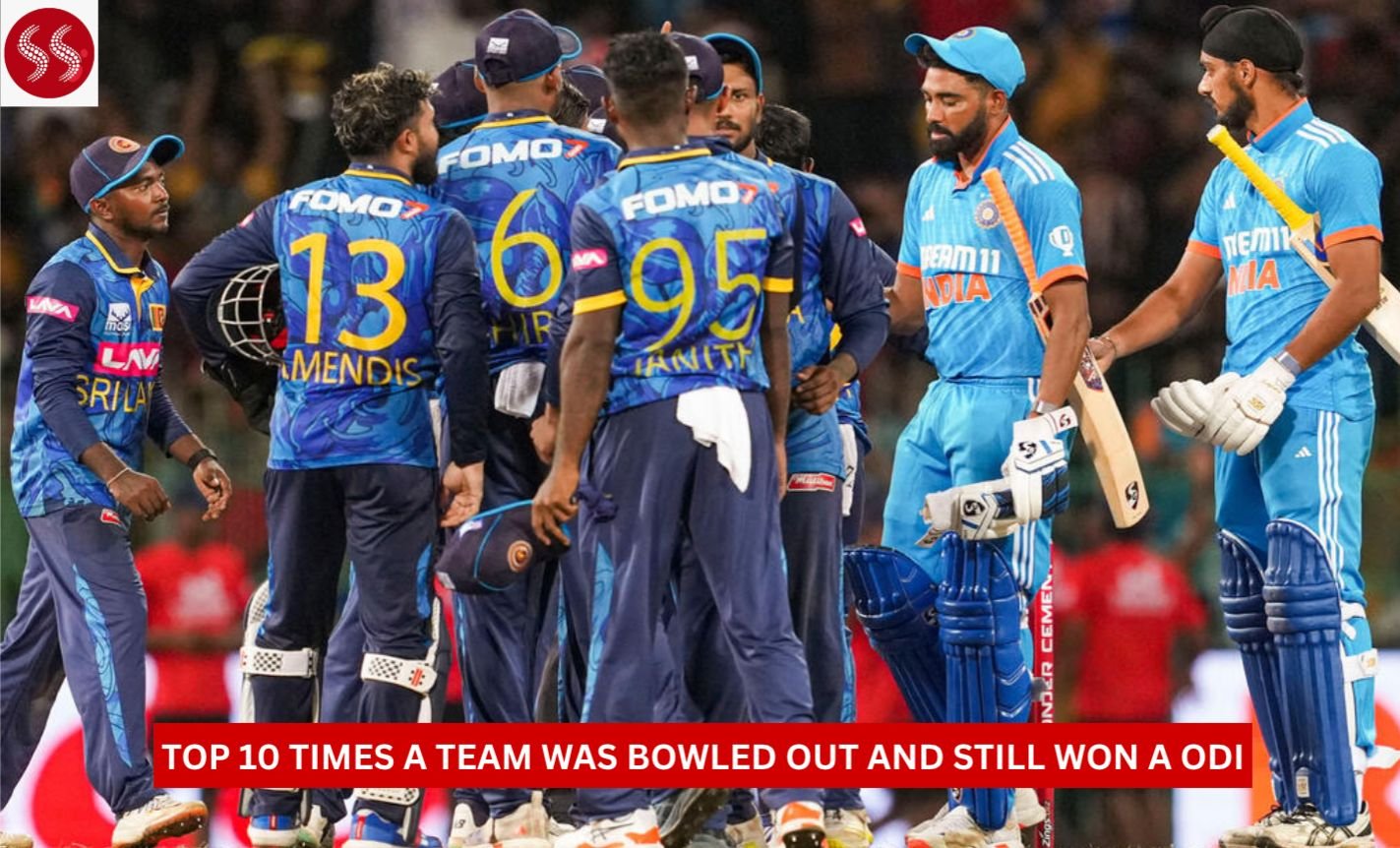In the landscape of One-Day Internationals, high-scoring matches often dominate headlines. Spectators flock to see explosive batting and massive totals. However, cricket’s true drama is often written in the margins when odds are defied, when underdogs bite back, and when strategy trumps scoreboard pressure. Among the rarest gems in ODI cricket are those captivating instances where a team was bowled out yet managed to win the match.
The default assumption in ODIs is that a team getting bowled out, especially for a modest total, is usually doomed. Yet, there are thrilling moments when bowlers stepped up, fielders held their nerves, and captains masterminded impossible victories. These aren’t just upsets; they are episodes of mental fortitude, strategic discipline, and unmatched resilience. Let’s celebrate the Top 10 Times a Team Was Bowled Out and Still Won an ODI, a testimony to the unpredictable magic of cricket.
10. England vs Australia – Lord’s, 2001
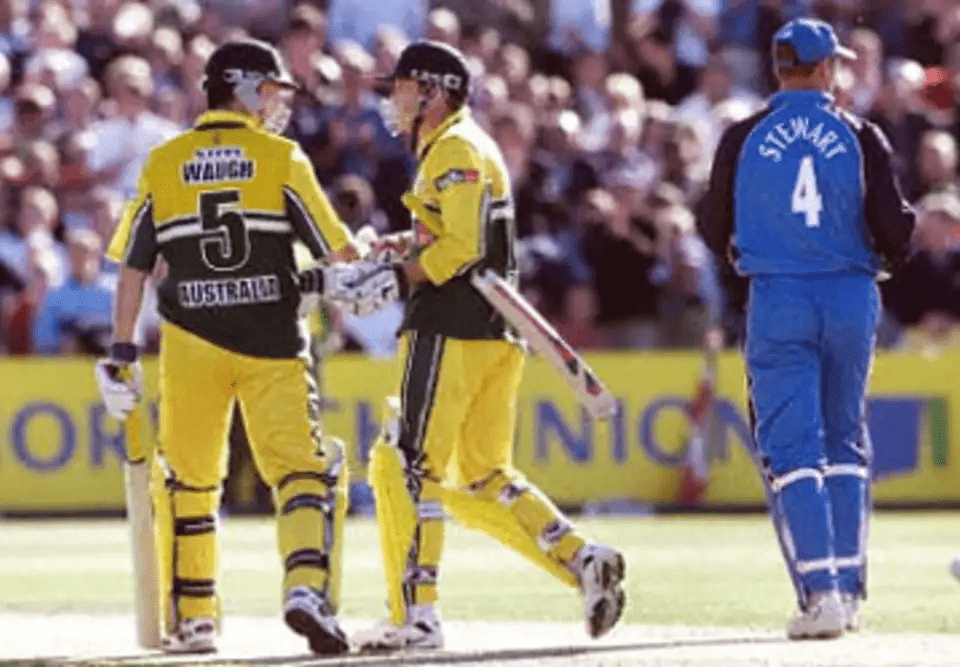
In front of a packed Lord’s crowd, England posted a below-average score of 208 after being bowled out. The Australian batting juggernaut looked poised to cruise to victory.
However, Darren Gough’s magical spell dismantled the Aussie chase. The Lord’s crowd erupted as wickets tumbled. England proved that when a team was bowled out, the game didn’t end; it just began another act.
Match Summary:
| Date | Venue | England Score | Australia Score | Result |
|---|---|---|---|---|
| Jun 24, 2001 | Lord’s | 208 all out (48.4 overs) | 187 all out (46.2 overs) | England won by 21 runs |
9. Afghanistan vs Sri Lanka – Abu Dhabi, 2018 Asia Cup
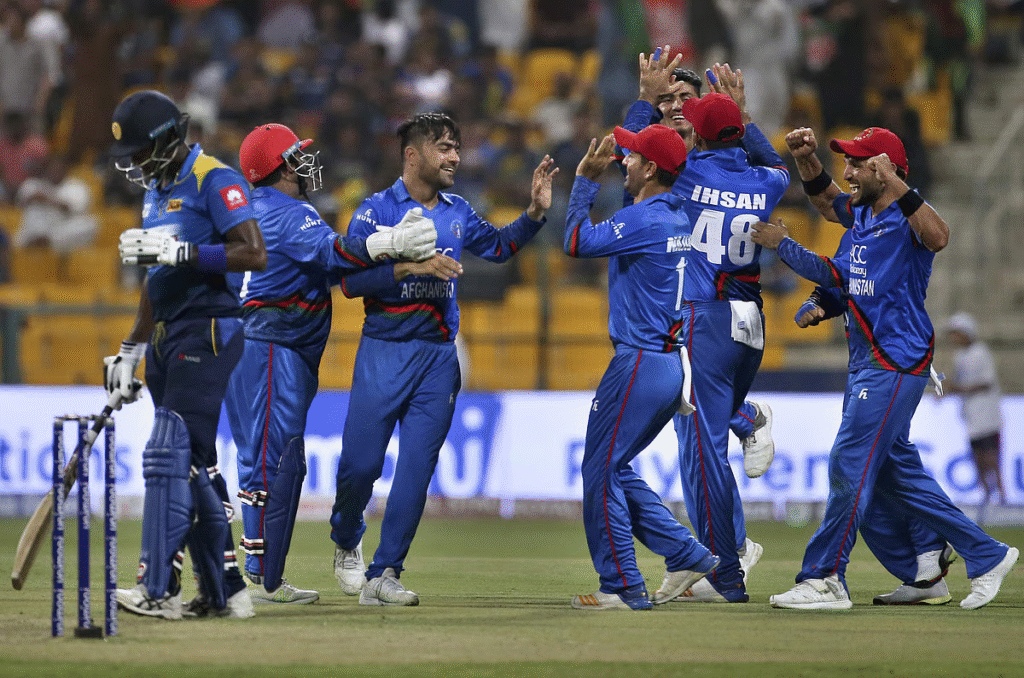
Afghanistan were bowled out for 249, and though it wasn’t a terrible score, chasing sides had dominated in UAE conditions. But this Afghan team was brimming with belief.
Led by Rashid Khan and Mujeeb Ur Rahman, they ripped through Sri Lanka’s batting. It was one of the greatest wins in Afghanistan’s cricketing journey. Despite the team being bowled out, the game was never truly out of their hands.
Match Summary:
| Date | Venue | Afghanistan Score | Sri Lanka Score | Result |
|---|---|---|---|---|
| Sep 17, 2018 | Abu Dhabi | 249 all out (50 overs) | 158 all out (41.2 overs) | Afghanistan won by 91 runs |
8. West Indies vs Pakistan – Sharjah, 1993
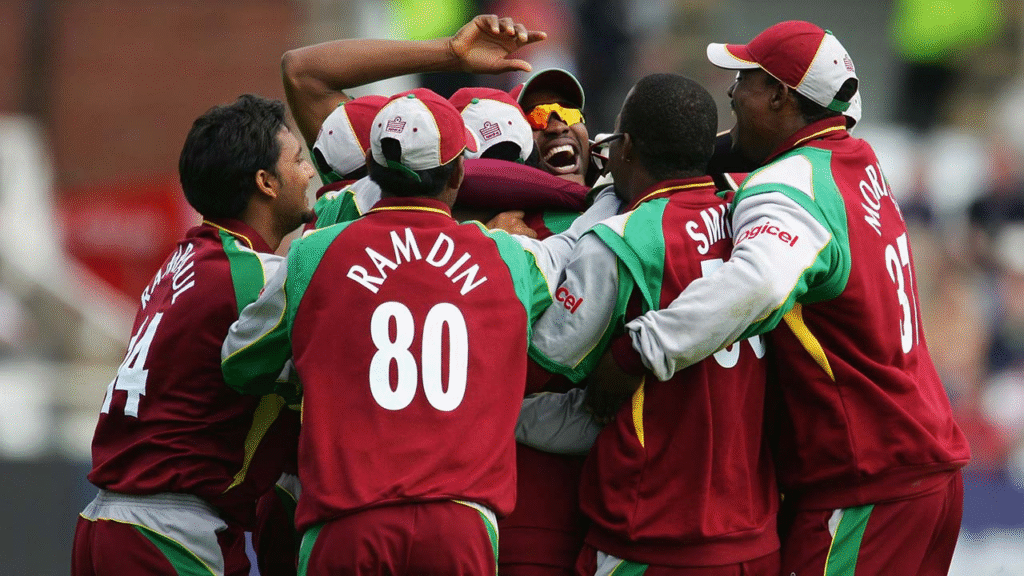
In the cauldron of Sharjah, Pakistan were expected to chase down 214 set by the West Indies. But even though the team was bowled out, West Indies never let their guard down.
Ambrose, Walsh, and Cummins delivered a spellbinding exhibition of fast bowling. Pakistan succumbed under scoreboard pressure, handing West Indies a 19-run win, a masterclass in how to defend low scores.
Match Summary:
| Date | Venue | West Indies Score | Pakistan Score | Result |
|---|---|---|---|---|
| Nov 5, 1993 | Sharjah | 214 all out (48.3 overs) | 195 all out (47.4 overs) | West Indies won by 19 runs |
7. New Zealand vs India – Auckland, 2014

A modern-day classic. New Zealand, despite being bowled out for 271, used the dimensions of Eden Park perfectly. India were cruising at one stage before their middle order collapsed under pressure.
Tim Southee and Kyle Mills kept chipping away. It was another reminder that even in modern-day ODI cricket, when a team was bowled out, it didn’t signal defeat, especially if they backed it with disciplined bowling and fielding.
Match Summary:
| Date | Venue | New Zealand Score | India Score | Result |
|---|---|---|---|---|
| Jan 22, 2014 | Auckland | 271 all out (48.5 overs) | 266 all out (49.3 overs) | New Zealand won by 5 runs |
6. Zimbabwe vs India – Harare, 1997
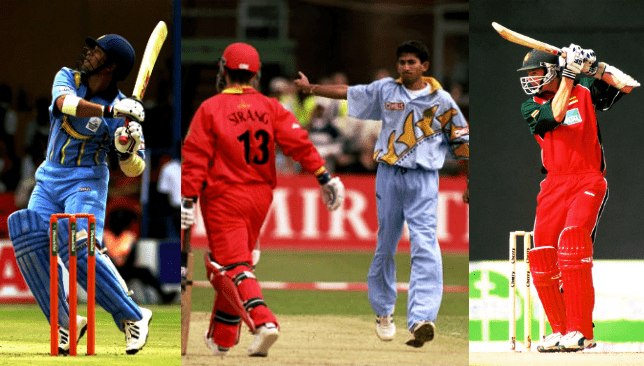
Zimbabwe were never considered a favourite against India in the late ’90s. When they were bowled out for 205, the match seemed done and dusted. But what followed was pure magic.
Eddo Brandes bowled one of the spells of his life, dismantling India’s top order and reducing them to a panic-stricken chase. The fact that a team was bowled out and still pulled off such a tight win showed the unpredictable nature of ODIs.
Match Summary:
| Date | Venue | Zimbabwe Score | India Score | Result |
|---|---|---|---|---|
| Jun 3, 1997 | Harare | 205 all out (49.4 overs) | 200 all out (49.5 overs) | Zimbabwe won by 5 runs |
5. Pakistan vs Sri Lanka – Sharjah, 2002

Sharjah was known for close finishes in the late ‘90s and early 2000s, and this match was no different. Pakistan were dismissed for 196, a below-par total by any measure. Yet they refused to go down without a fight.
Led by Shoaib Akhtar’s fiery pace and Waqar Younis’ reverse swing, Pakistan dismantled Sri Lanka’s batting unit. The fact that the team was bowled out yet came back to win reflected the strength of their bowling resources.
Match Summary:
| Date | Venue | Pakistan Score | Sri Lanka Score | Result |
|---|---|---|---|---|
| Oct 25, 2002 | Sharjah | 196 all out (47.3 overs) | 172 all out (46.1 overs) | Pakistan won by 24 runs |
4. Bangladesh vs India – Mirpur, 2012

In what was hailed as one of Bangladesh’s most memorable wins, they were bowled out for 229, a target that looked like a formality for a strong Indian batting unit. But this was no ordinary day. Mashrafe Mortaza and Shakib Al Hasan had other plans.
India’s innings unravelled in a combination of dot-ball pressure, poor shot selection, and inspired bowling. Even though the team was bowled out, Bangladesh proved that every run counted when defended with passion and purpose.
Match Summary:
| Date | Venue | Bangladesh Score | India Score | Result |
|---|---|---|---|---|
| Mar 16, 2012 | Mirpur | 229 all out (47 overs) | 214 all out (49.2 overs) | Bangladesh won by 5 runs |
3. South Africa vs Australia – Perth, 1994

In the early ’90s, South Africa’s return to international cricket was marked with several stunning performances, and this one in Perth stood tall. Batting first, the Proteas managed only 208 before getting bowled out. In an era of strong Australian dominance at home, the script seemed familiar.
However, South Africa’s bowlers Donald, de Villiers, and Matthews executed one of the most clinical bowling displays. Swing, bounce, and accuracy turned the contest on its head. This was another iconic instance when a team was bowled out but still managed to prevail through sheer bowling brilliance.
Match Summary:
| Date | Venue | South Africa Score | Australia Score | Result |
|---|---|---|---|---|
| Dec 10, 1994 | Perth | 208 all out (49.2 overs) | 172 all out (47.3 overs) | South Africa won by 36 runs |
2. Australia vs England – Leeds, 1981

In the summer of 1981, known famously as the “Botham Ashes,” drama wasn’t limited to the Test arena. In this ODI at Leeds, Australia were bowled out for just 171. England had a solid batting line-up, and the game looked to be a straightforward chase.
But in an era where ODI cricket was still evolving, Australia made the most of overcast conditions and a seaming pitch. Their pacers turned the tide by applying relentless pressure. England were bowled out for 153, making it one of the first high-profile ODIs where a team was bowled out but turned the tables spectacularly.
Match Summary:
| Date | Venue | Australia Score | England Score | Result |
|---|---|---|---|---|
| Jun 6, 1981 | Leeds | 171 all out (54.3 overs) | 153 all out (50.2 overs) | Australia won by 18 runs |
1. India vs Pakistan – Toronto, 1997
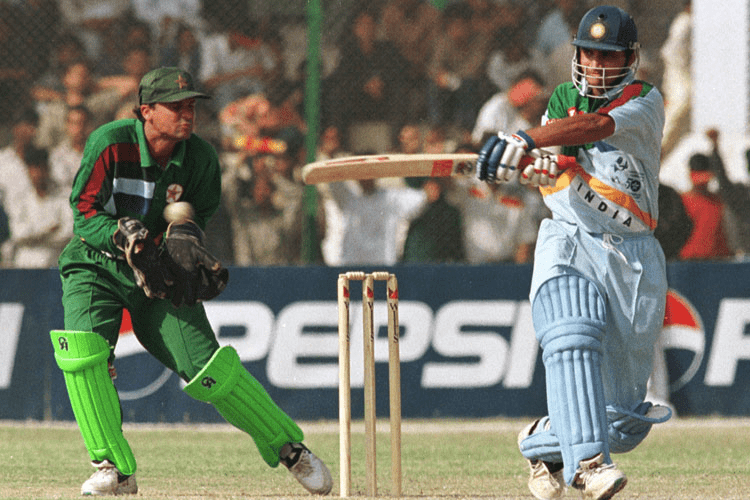
The Sahara Cup of 1997 remains etched in the minds of Indian cricket fans for multiple reasons, but this particular match in Toronto stood out for its sheer unpredictability. India were bowled out for a sub-par total of 182 on a tricky pitch. A young Indian side was written off at the halfway mark. But with immaculate line and length, the bowling unit led by Anil Kumble and Abey Kuruvilla stunned Pakistan. They triggered a collapse that few saw coming.
Despite being under pressure, the Indian bowlers exhibited incredible discipline and executed a clear plan, dot balls, tight lengths, and aggressive field settings. It was one of the earliest instances when a team was bowled out and still controlled the game from the second innings onward.
Match Summary:
| Date | Venue | India Score | Pakistan Score | Result |
|---|---|---|---|---|
| Sep 20, 1997 | Toronto | 182 all out (49.2 overs) | 148 all out (44.3 overs) | India won by 34 runs |
READ MORE:
